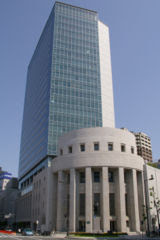The Allure of NSE Growth Despite Electioneering Politics
20-share Index
It is noteworhty that the Nairobi Stock Exchange (NSE) came from an earlier 10% plunge this year to exploit one of its most prosperous years of the decade with the 20-Share Index, rising to above 6,000 points at one point.The phenomenal growth of the 20-share index, a reflection of the investors' growing wealth, is expected to continue into the New Year as the capital and financial markets shed fears of political uncertainty, expected to end with the December 27 presidential polls.
New Listings
This year's stock market trade was continually dominated by the events of 2006, which saw the successful listing of the Kenya Electricity Generating Company (KENGEN). This warmed the once dormant market and brought in 250,000 first-time investors.The NSE owes its milestones this year to the increased market confidence, exemplified by the coming to the market of family-owned businesses. The listing of the Scangroup, a multiparty marketing, advertising and research firm and Access Kenya, enabled the NSE to diversify its source of income and grow its market capitalization to new heights, with the later becoming the first ICT company on the bourse.
Panic Selling
The market took a mid-year beating from political activity this year with the 20-Share Index plunging by 9.24% due to panic selling of shares, mainly by the first-time investors who did not understand the meaning of market correctional activities.The June market plunge initially seemed to be a bad precedent but it came as a blessing in disguise as foreign fund managers, who had exited the market in the mid-1990s, and had been watching the market from the sidelines, came back rushing to buy the shares.
Collapsed Stock Broker Replaced
Investors panicked after the market regulator took action against Francis and Thuo Partners, one of the oldest stockbrokers, which was found to violate trading rules by using investors' funds without consent.Mr. Francis Thuo was replaced by Renaissance Capital, which purchased the seat at Ksh420 million. The money was used to partly pay off investors who had lost money with the collapse of the rogue investment firm. The NSE paid up over Ksh.200 million.
Investor Numbers
The number of investors at the NSE rose to historical levels this year to hit 750,000 compared to the 80,000 investors who traded at the NSE in 2003. The NSE, however, estimates that only 100,000 shareholders trade actively. NSE still faces stiff challenges, especially on investor education, a portfolio which falls with the market regulator, the Capital Markets Authority (CMA). The NSE reached its decision to sell the vacant seat to the Russia-registered Renaissance Capital in a bid to deepen the capital market in Kenya, by bringing in foreign capital.
Renaissance Capital and Morgan Stanley
RenCap ecured a stockbrokerage license from the CMA, allowing it to enter the growing market in Kenya, while one of the world's greatest investment banks, Morgan Stanley, also gained entry into the Kenyan market, thanks to the pending Safaricom listing.
Morgan Stanley partnered with Dyer and Blair Investment Bank to win the coveted bid for transaction advisor for the Safaricom Initial Public Offer (IPO), which is expected to be the next big bang in Kenya's capital market.The mega deals which dominated the NSE in 2006 trickled over into 2007, constantly putting bourse on a steady growth path and shaping the market activity.
Kenya Reinsurance
State re-insurer, Kenya Reinsurance Corporation, statutorily allowed a 30% share in any insurance deal in the market, also came to the market this year, bringing on board a hoard of fresh investors, both local and foreign, who came to profit from the June meltdown.
Market Capitalization
This year, market capitalization increased to historical levels, from Ksh112.5 billion in 2002 to Ksh732 billion in mid 2007 before peaking at close to Ksh800 billion in December.
The 20-Share Index has also stabilized at an average of 5,500 although it breached the 6,000 mark within the year before taking a deep plunge due to political volatility. The growth of the share index from 1, 364.85 in 2002. The index stood at 5,332.03 as of 11 Dec.
The share index shed nearly 600 points in October this year, closing the second week of the month at 5005.89 points compared to a high of 5611 points in early September.
Scangroup, Equity, PTA and Barclays
The listing of 69 million Scangroup shares, the Equity Bank placement in the market's main investment segment, the listing of the PTA Ksh1 billion bond, the listing of Barclay's three-year corporate bond of Ksh5 billion, played as major movers of business.
Banks Profitability
Stock market analysts say the first six months of the year was dictated by the high after tax profits posted by the listed commercial banks increased.
Parting Shot
The new year portends new growth heights for the NSE as foreign investors flock into the Kenyan market after a decade of shying away. This is a clear indication that Kenya as an emerging market is going places.
Don't be left out!!!!

















